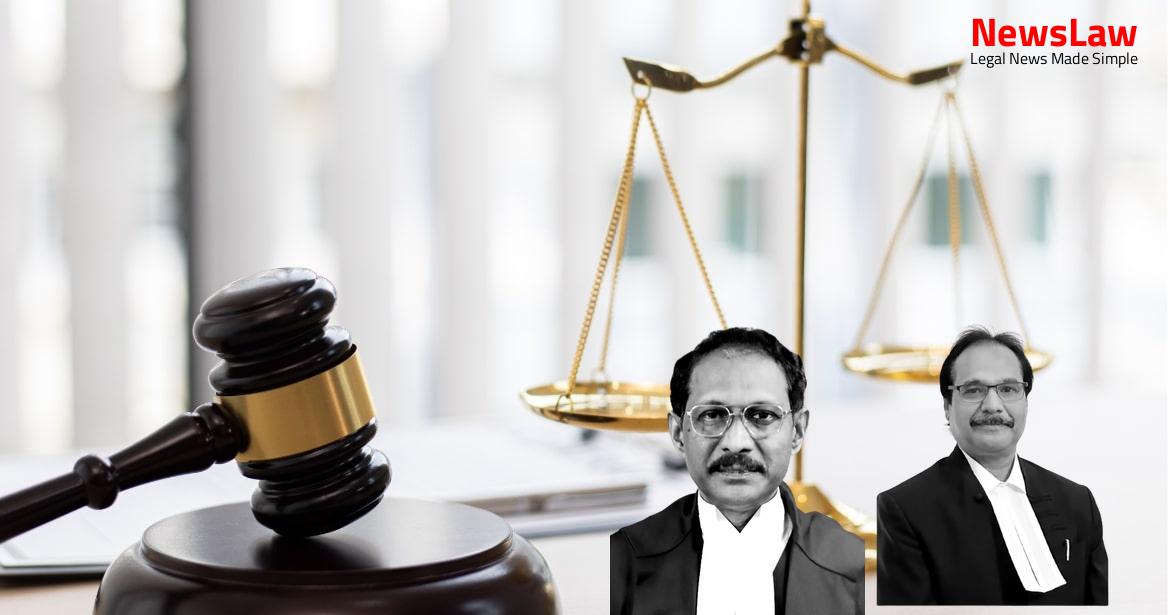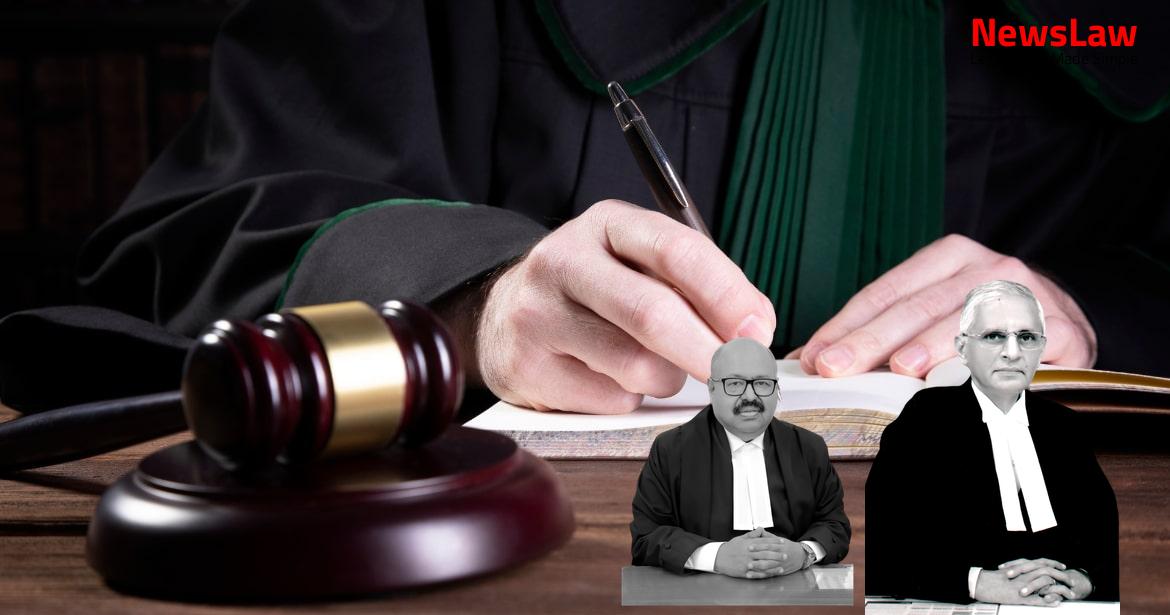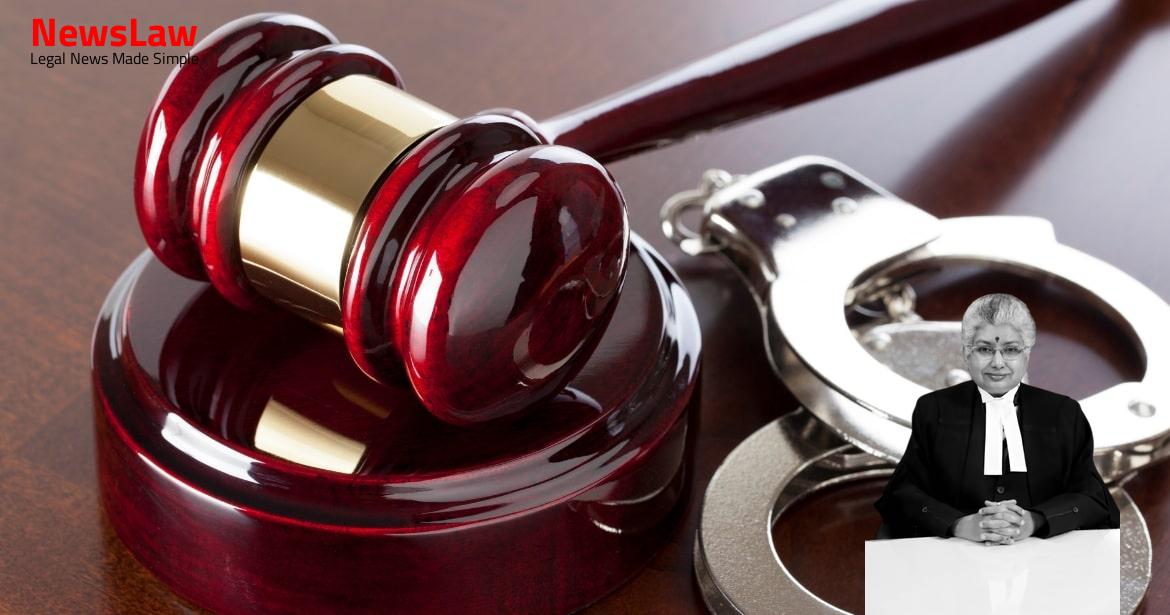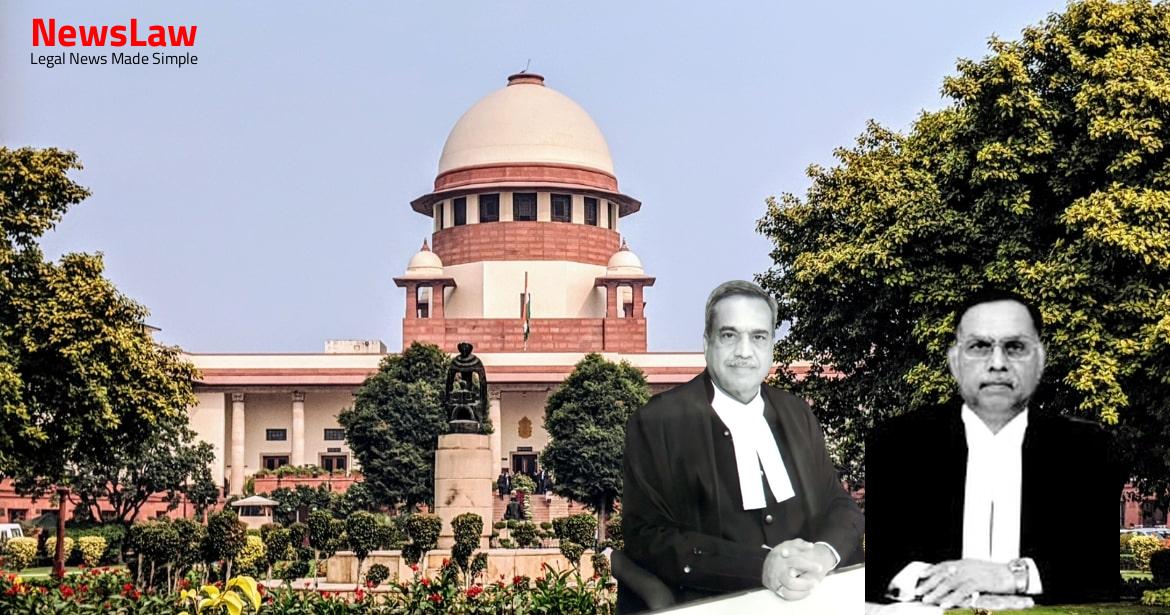In a significant legal battle surrounding a sale agreement, the Supreme Court of India delves into the proof of payments between parties. The case revolves around the agreement made between the parties, highlighting the complexities of establishing financial transactions and upholding evidence in legal proceedings. This judgment sheds light on the intricacies of payment disputes and the importance of presenting concrete evidence to support claims.
Facts
- Defendant No. 1 took a loan from a bank by creating an equitable mortgage on his title deeds.
- Defendant No. 1 received Rs. 15,00,000 from the plaintiff to clear liabilities and extended the agreement.
- Defendant No. 1 had financial transactions with K.K. Vijayadharan Pillai involving blank papers and cheques.
- Defendant No. 1 agreed to sell the property to the plaintiff for Rs. 30,00,000 but did not execute the sale deed.
- High Court allowed Defendant No. 1’s appeal, modifying the Trial Court’s decree to refund Rs. 18,00,000 to the plaintiff.
- Defendant No. 1 denied any contract with the plaintiff and claimed the suit was influenced by forged documents.
- Plaintiff claimed for specific performance of the agreement and refund of Rs. 18,00,000.
- Trial Court established the agreement’s authenticity and readiness of plaintiff to pay balance sale consideration.
- Defendant No. 1’s appeal against the Trial Court’s decision was based on denying the agreement’s execution.
- Defendant No. 1 claimed he is only a co-owner of the property worth over Rs. 1,00,00,000.
- Under the impugned judgment, the High Court allowed the plaintiff to recover only Rs. 3,00,000/- with 12% interest per annum from Defendant No. 1.
- Evidence presented by witnesses supported the finding in favor of the plaintiff.
- The Trial Court considered evidence from both sides, including a practicing advocate, but disbelieved the advocate’s testimony.
- Defendant No. 1 claimed his signatures were misused on blank documents to create a forged agreement.
- Trial Court denied specific performance based on equitable principles and directed Defendant No. 1 to repay the advance sale consideration along with interest.
- High Court partially allowed Defendant No. 1’s appeal, modifying the decree and allowing the plaintiff to recover Rs. 3,00,000/- with 12% interest per annum.
- Claim petition of the claimant was rejected in the appeal.
Also Read: The Sentencing Dilemma: Supreme Court’s Decision in the Case of Attempted Murder Conviction
Issue
- The material issue to be decided is the proof of payment of Rs. 3,00,000 initially and another sum of Rs. 15,00,000 totaling to Rs. 18,00,000 to the defendant.
Also Read: Landmark Supreme Court Judgment on Delayed Possession of Flats
Analysis
- The missing payment of Rs. 15,00,000 in the suit notice is a significant issue in the case.
- The bone of contention is the additional advance consideration of Rs. 15,00,000 as evidenced by exhibit A-1(a) endorsement.
- The claimant in Ex. F.A. No 6 of 2011 is not involved in this appeal, making that part of the judgment final.
- There is no challenge from the plaintiff regarding the declining of specific relief of the agreement of sale, as no First Appeal was filed before the High Court.
- The High Court pointed out that no stamp receipts were produced for subsequent payments mentioned in the agreement.
- The signature sequence in the document raises questions about the notice preparation and potential lack of information provided to the advocate.
- Payment of Rs. 3,00,000 on the date of agreement has been proven in the evidence of PW-1 and PW-3.
- The suit notice exhibit B-1 does not mention the advance sale consideration or the subsequent Rs. 15,00,000 payment.
- Only the refund part of the relief allowed in favor of the plaintiff is being considered in this appeal.
- The plaintiff’s evidence stands alone without corroboration from other witnesses on the refund aspect.
- The Court has examined the material papers and the agreement document in detail during the hearing.
- Plaintiff’s statement in Court without corroboration is deemed not believable.
- High Court rightly found that plaintiff’s claim of subsequent payment of Rs. 15,00,000 is not established by positive evidence.
- After examining the entire evidence, it is found that plaintiff has only proved payment of advance sale consideration of Rs. 3,00,000 at the time of the agreement.
- The High Court’s conclusion in this regard is upheld as no other conclusion seems plausible based on the evidence.
Also Read: Enhancement of Sentence in the Case of Bigamy: Appellant vs. Accused Nos. 1 and 2
Decision
- Parties shall bear their own costs.
- The appeal is dismissed as it lacks substance.
Case Title: R.RADHAKRISHNA PRASAD Vs. SWAMINATHAN (2024 INSC 463)
Case Number: C.A. No.-000910-000910 – 2024



